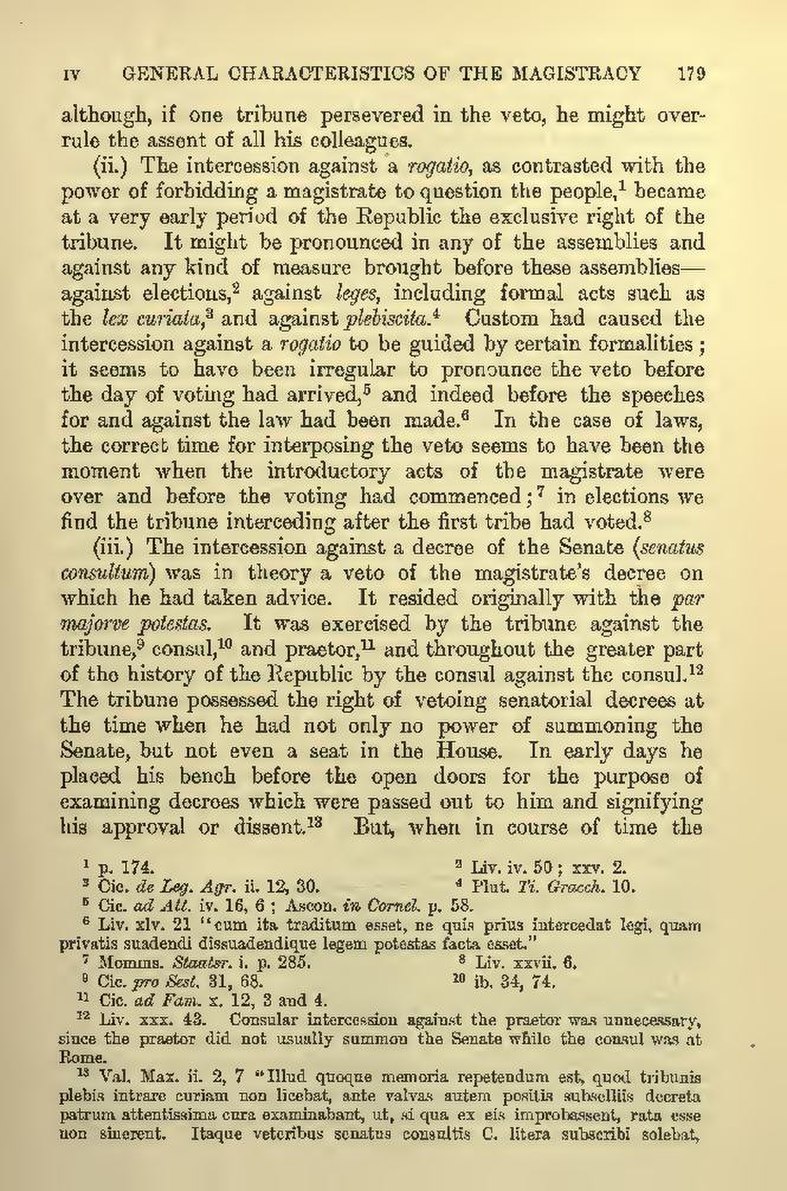although, if one tribune persevered in the veto, he might overrule the assent of all his colleagues.
(ii.) The intercession against a rogatio, as contrasted with the power of forbidding a magistrate to question the people,[1] became at a very early period of the Republic the exclusive right of the tribune. It might be pronounced in any of the assemblies and against any kind of measure brought before these assemblies—against elections,[2] against leges, including formal acts such as the lex curiata,[3] and against plebiscita.[4] Custom had caused the intercession against a rogatio to be guided by certain formalities; it seems to have been irregular to pronounce the veto before the day of voting had arrived,[5] and indeed before the speeches for and against the law had been made.[6] In the case of laws, the correct time for interposing the veto seems to have been the moment when the introductory acts of the magistrate were over and before the voting had commenced;[7] in elections we find the tribune interceding after the first tribe had voted.[8]
(iii.) The intercession against a decree of the Senate (senatus consultum) was in theory a veto of the magistrate's decree on which he had taken advice. It resided originally with the par majorve potestas. It was exercised by the tribune against the tribune,[9] consul,[10] and praetor,[11] and throughout the greater part of the history of the Republic by the consul against the consul.[12] The tribune possessed the right of vetoing senatorial decrees at the time when he had not only no power of summoning the Senate, but not even a seat in the House. In early days he placed his bench before the open doors for the purpose of examining decrees which were passed out to him and signifying his approval or dissent.[13] But, when in course of time the*
- ↑ p. 174.
- ↑ Liv. iv. 50; xxv. 2.
- ↑ Cic. de Leg. Agr. ii. 12, 30.
- ↑ Plut. Ti. Gracch. 10.
- ↑ Cic. ad Att. iv. 16, 6; Ascon. in Cornel. p. 58.
- ↑ Liv. xlv. 21 "cum ita traditum esset, ne quis prius intercedat legi, quam privatis suadendi dissuadendique legem potestas facta esset."
- ↑ Momms. Staatsr. i p. 285.
- ↑ Liv. xxvii. 6.
- ↑ Cic. pro Sest. 31, 68.
